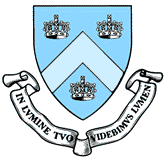Read more!
GLOBAL CORE
2008-2009 PRELIMINARY APPROVED COURSE LIST
Fall 2008
8/25/08
The Global Core requirement consists of courses which are broadly introductory, interdisciplinary, and temporally or spatially expansive. Like other Core courses, Global Core courses are organized around a set of primary texts, new media (film, ritual performance, etc) or oral sources produced in the regions of the world in question. Global Core courses fall into two categories: those which focus on a specific culture or civilization, tracing its appearance and existence across a significant span of time and sometimes across more than one present-day country or region; and those which address several world settings or cultures comparatively (and may include Europe and the West), through a common theme, set of analytic questions, or through interactions among different world regions.
Students must complete two courses from this list for a letter grade.
**The Class of 2012 must fulfill the Global Core requirement; Classes of 2009, 2010, and 2011 can choose to fulfill either Major Cultures or Global Requirement.An updated list of approved courses will be available prior to spring registration.
Anthropology [ANTH]:V1008 The rise of civilization
V2010 Major debates in the study of Africa
V2100 Muslim societies
V3027 Archaeology and Africa: changing perceptions of the African past
V3300 Pre-Columbian histories of Native America
W4001 The ancient empires
African Civilizations [AFCV]:C1020 African civilization
Art History and Archaeology [AHIS]:V3201 The arts of China
V3203 The arts of Japan
W3208 Arts of Africa
AHUM V3340 Art in China, Japan, and Korea
AHUM V3342 Masterpieces of Indian art and architecture
AHUM V3343 Masterpieces of Islamic art and architecture
G4073 African art, architecture, and ideas
G4085 Andean art and architecture
Colloquia and Interdepartmental Seminars [INSM]:W3920 Nobility and civility
Comparative Ethnic Studies [CSER]:W1010 Introduction to comparative ethnic studies
Comparative Literature and Society [CPLS]:W3620 Islam and Europe
East Asian Languages and Cultures [EAAS]:ASCE V2002 Introduction to major topics in Asian civilizations: East Asia
ASCE V2359 Introduction to East Asian civilizations: China
ASCE V2361 Introduction to East Asian civilizations: Japan
ASCE V2363 Introduction to East Asian civilizations: Korea
ASCE V2365 Introduction to East Asian civilizations: Tibet
W3338 Cultural history of Japanese monsters
AHUM V3400 Colloquium on major texts: East Asia
AHUM V3830 Colloquium on modern East Asian texts
HSEA W3898 The Mongols in history
AHUM W4027 Colloquium on major works of Chinese philosophy, religion, and literature, I
AHUM W4028 Colloquium on major works of Chinese philosophy, religion, and literature, II
AHUM W4029 Colloquium on major works of Japanese philosophy, religion, and literature, I
AHUM W4030 Colloquium on major works of Japanese philosophy, religion, and literature, II
HSEA W4881 Gods, ghosts, and ancestors: social history of Chinese religion
History [HIST]:W3618 The Caribbean in the 19th and 20th centuries
W3660 History of Latin American civilization I, pre-Columbian to 1810
W3665 Economic history of Latin America
W3711 Islamo-Christian civlization
W3719 History of the modern Middle East
W3760 Main currents in African history
HSEA W3898 The Mongols in history
W4404 Native American history
HSEA W4881 Gods, ghosts, and ancestors: social history of Chinese religion
Middle East and Asian Languages and Cultures [MDES]:ASCM V2001 Introduction to major topics in Asian civilizations: the Middle East and India
ASCM V2003 Introduction to Islamic civilization
ASCM V2008 Contemporary Islamic civilization
CLME W3000 Theories of culture: Middle East and South Asia
W3004 Islam in South Asia
AHUM V3399 Colloquium on major texts: Middle East and Asia
CLME W4031 Cinema and society in Asia and Africa
SPME W4200 Andalusian symbiosis: Arabs and the West
W4251 Introduction to political thought in the modern Middle East
Music [MUSI]:V2020 Salsa, soca, and reggae: popular musics of the Caribbean
AHMM V3320 Introduction to the musics of East Asia and Southeast Asia
AHMM V3321 Introduction to the musics of India and West Asia
Political Science [POLS]:W4445 Politics of the Middle East and North Africa
G4461 Latin American politics
Religion [RELI]:V2005 Buddhism: Indo-Tibetan
V2008 Buddhism: East Asian
V2205 Hinduism
V2305 Islam
V2802 Introduction to Asian religions
Spanish and Portuguese [SPAN]:W3265 Latin American literature in translation
W3349 Hispanic culture: Islamic Spain through the colonial period
W3350 Hispanic culture: Enlightenment to the present
W3490 Latin American humanities, I (in English)
W3491 Latin American humanities, II (in English)
SPME W4200 Andalusian symbiosis: Arabs and the West







